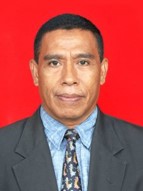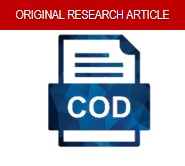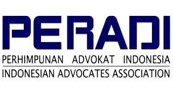The State's Responsibility for Space Waste According to International Law
DOI:
https://doi.org/10.46924/jihk.v2i1.135Keywords:
State Responsibility, Space Waste, International LawAbstract
Due to a lot of garbage, celestial bodies crashing into satellites are no longer a common thing. Even on March 12, 2017, the International Space Station (ISS) was almost hit by a shard of a celestial body whose diameter is only 0.8 centimeters but has a speed of 30,000 km per hour. The study aims to explain the responsibility of the fall of space waste to other countries according to international law. The impact of such use can interfere with the sovereignty of the country's territory, so that the International Law Commission (ILC), which is a United Nations Agency tasked with managing and discussing drafts on provisions on state responsibility, issues international legal instruments on state responsibility and this instrument is only related to state responsibility with general principles which is called as the Responsibility of States for Internationally Wrongful Acts (ILC ASR). If space debris falls to earth and enters the territory of another country, then we can conclude that the country that owns the space waste must be responsible for the country that falls into the space waste even though it is not the fault of the operator or the country that owns the satellite.
Downloads
References
Jurnal
Cracknell, Arthur P., and Costas Varotsos. “Fifty Years after the First Artificial Satellite: From Sputnik 1 to ENVISAT.” International Journal of Remote Sensing 28, no. 10 (2007): 2071–72. https://doi.org/10.1080/01431160701347147.
Etinski, Rodoljub, and Bojan Tubic. “International Law and the Rule of Law.” Anali Pravnog Fakulteta u Beogradu 64, no. 3 (2016): 57–74. https://doi.org/10.5937/AnaliPFB1603057E.
Hanafi, Irma H. “Aktifitas Penginderaan Jauh Melalui Satelit Di Indonesia Dan Pengaturannya Dalam Hukum Ruang Angkasa.” Jurnal Sasi 17, no. 2 (2011): 78–82. https://doi.org/10.47268/sasi.v17i2.355.
Herdiansyah, Herdis. “Kebijakan Strategis Mitigasi Ancaman Peredaran Orbit Satelit Terhadap Keamanan Nasional: Pendekatan Analytical Hierarchy Process.” Jurnal Keamanan Nasional 4, no. 2 (2018): 141–64. https://ojs.ubharajaya.ac.id/index.php/kamnas/article/view/393.
Irvan, Irvan, and I Wayan Novy Purwanto. “Upaya Demiliterisasi Di Ruang Angksa Ditinjau Dari Perspektif Hukum Ruang Angkasa Internasional.” Jurnal Kertha Negara 8, no. 7 (2020): 14–26. https://ojs.unud.ac.id/index.php/Kerthanegara/article/view/60965/35929.
Johnson, Christopher Daniel. “The Texas Space Flight Liability Act and Efficient Regulation for the Private Commercial Space Flight Era.” Acta Astronautica 92, no. 2 (2013): 226–34. https://doi.org/10.1016/j.actaastro.2012.05.025.
Lestari, Endang Puji. “Rekonsepsi Hak Penguasaan Negara Atas Wilayah Udara Di Tengah Kebijakan Liberalisasi Penerbangan.” Jurnal Rechtsvinding: Media Pembinaan Hukum Nasional 4, no. 2 (2015): 327–43. http://dx.doi.org/10.33331/rechtsvinding.v4i2.27.
Noor, Dimitri Anggrea, and I. Ketut Sudiarta. “Tanggung Jawab Negara Berdasarkan Space Treaty 1967 Terhadap Aktivitas Komersial Di Luar Angkasa.” Kertha Negara: Journal Ilmu Hukum 4, no. 1 (2016): 1–5. https://ojs.unud.ac.id/index.php/Kerthanegara/article/view/18881.
Prasetyo, Dony Aditya. “Tanggung Jawab Negara Peluncur Terhadap Sampah Ruang Angkasa.” Arena Hukum 9, no. 1 (2016): 1–16. https://doi.org/10.21776/ub.arenahukum.2016.00901.1.
Putra, Satria Diaz, Agus Pramono Pratama, and M. Kabul Supriyadhie. “Analisis Yuridis Eksistensi Yurisdiksi Satelit Ruang Angkasa Menurut Hukum Internasional.” Diponegoro Law Journalponegoro Law Journal 8, no. 1 (2019): 706–13. https://ejournal3.undip.ac.id/index.php/dlr/article/view/25359.
Subandi, Agit Yogi. “Tanggung Jawab Perusahaan Multinasional Dalam Kegiatan Keruangangkasaan Menurut Hukum Internasional Dan Hukum Ruang Angkasa.” Journal of Internafional Commercial Law and Technology 9, no. 1 (2014): 151–64. https://doi.org/10.23920/jbmh.v1n2.5.
Wicaksana, Dani Adi, Ida Bagus Wyasa Putra, and Made Maharta Yasa. “Kebijakan Internasional Pengaturan Lembaga Ganti Rugi Dalam Penyelesaian Ganti Rugi Akibat Pengoperasian Benda-Benda Angkasa Buatan.” Kertha Negara: Journal Ilmu Hukum 4, no. 2 (2016): 149–60.
Yuliantiningsih, Aryuni. “Aspek Hukum Kegiatan Wisata Ruang Angkasa (Space Tourism) Menurut Hukum Internasional.” Jurnal Dinamikia Hukum 11, no. 1 (2011): 145–46. http://dinamikahukum.fh.unsoed.ac.id/index.php/JDH/article/view/87.
Prosiding Konferensi
Hildreth, Steven A, and Allison Arnold. “Threats to U.S. National Security Interests in Space: Orbital Debris Mitigation and Removal.” In Congressional Research Service, 16:1–13, 2014. https://www.hsdl.org/?view&did=748309.
Buku
Dicey, Albert Venn. Introduction to the Study of the Law of the Constitution. USA: Liberty Fund, 2012.
Lee, Ricky J. Law and Regulation of Commercial Mining of Minerals In Outer Space. London: Springer, 2012.
Peraturan Perundang-udangan
International Court of Justice. Statute of The International Court of Justice, Chapter 38 (1) (2017).
International Law Commission. ILC’s Draft Articles, Part 2 on the responsibility international organization (2001).
Internet
As. “Ancaman Bahaya Sampah Luar Angkasa.” Deutsche Welle, 2009. https://www.dw.com/id/ancaman-bahaya-sampah-luar-angkasa/a-4126140-0.
Downloads
Published
Issue
Section
License
Authors who publish with this journal agree to the following terms:
- Copyright on any article is retained by the author(s).
- The author grants the journal, the right of first publication with the work simultaneously licensed under a Creative Commons Attribution License that allows others to share the work with an acknowledgment of the work’s authorship and initial publication in this journal.
- Authors are able to enter into separate, additional contractual arrangements for the non-exclusive distribution of the journal’s published version of the work (e.g., post it to an institutional repository or publish it in a book), with an acknowledgment of its initial publication in this journal.
- Authors are permitted and encouraged to post their work online (e.g., in institutional repositories or on their website) prior to and during the submission process, as it can lead to productive exchanges, as well as earlier and greater citation of published work.
- The article and any associated published material is distributed under the Creative Commons Attribution 4.0 International License




 Sinta ID:
Sinta ID: 


















